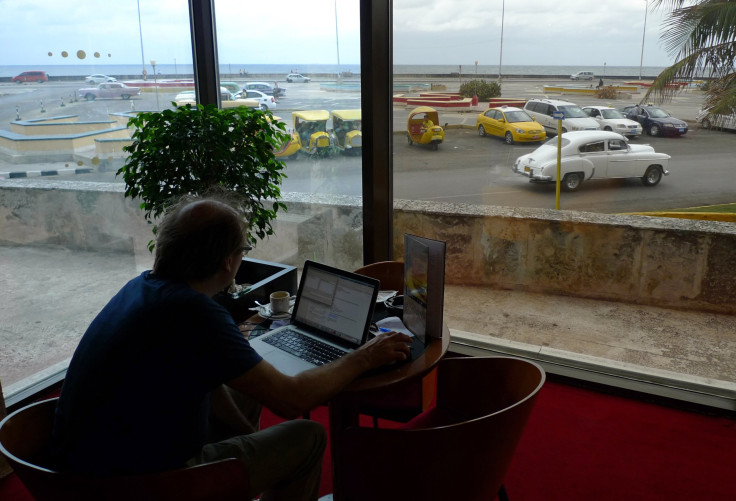Cuba To Expand Internet Under New US Agreement Allowing The Sale Of Networking Gear

Cuba, say hello to Twitter. Along with expanding travel and increasing trade, the White House plan to restore diplomatic relations with Cuba after more than 50 years will provide Cubans with an unprecedented level of Internet access. The plan announced today will allow U.S. telecommunications firms to sell networking gear to local entities, potentially expanding access to the Internet for more Cuban people.
Cuban government figures released in 2011 reported that 25 percent of the country’s citizens had access to a government-controlled Intranet. A mere five percent of Cubans have had unrestricted access to the open Internet currently enjoyed by Americans and much of the free world, though when they do log on the connection is so slow that it’s difficult to do more than the most basic tasks. Even if it’s still unclear how much freedom Cubans will actually have online, it’s almost certain that the number able to log on will increase exponentially.
“Unfortunately our sanctions on Cuba have denied Cubans access to technology that has empowered individuals around the globe,” U.S. President Obama said from the White House Wednesday. “So I’ve authorized increased telecommunication connections between the United States and Cuba. Businesses will be able to sell good that enable Cubans to communicate with the United States and other countries.”
The change was spurred by a prisoner exchange between the U.S. and Cuba, including the release of Alan Gross. The U.S. citizen was imprisoned for five years in Cuba, accused of being an American spy while the U.S. State Department has maintained that he was nothing more than a subcontractor for the U.S. Agency for International Development who was working to break the Cuban blockade on information by providing satellite communication equipment.
Yet the president’s proposal still faces serious limitations. There are concerns that the Castro administration will continue to limit the free flow of information -- à la the Chinese Internet -- and that the nation’s Internet infrastructure simply won’t be able to live up to a sudden surge in activity. Home networks are virtually nonexistent and the government-owned Internet cafés that have become popular charge as much as $4.50 for access to Castro-approved websites.
“Obviously it’s not enough, we understand that, we know that and we have plans to expand access,” Tania Velazquez Rodriguez, an assistant director with a state-run telecommunications agency, told CNN last year, adding that 1,000 people use each Internet café daily. “Obviously our government promotes certain conduct regarding ethical and moral behaviors.”
Still, despite the limitations of Cuban Internet hotspots, experienced travelers and political scientists have suggested that a certain kind of hope has existed among the Cuban population that conditions will soon improve.
“I do not expect the changes I’m announcing today to bring about a transformation of Cuban society overnight,” Obama said. “But I am convinced that through a policy of engagement we can more effectively stand up for our values and help the Cuban people help themselves as they move into the 21st century.”
© Copyright IBTimes 2024. All rights reserved.





















